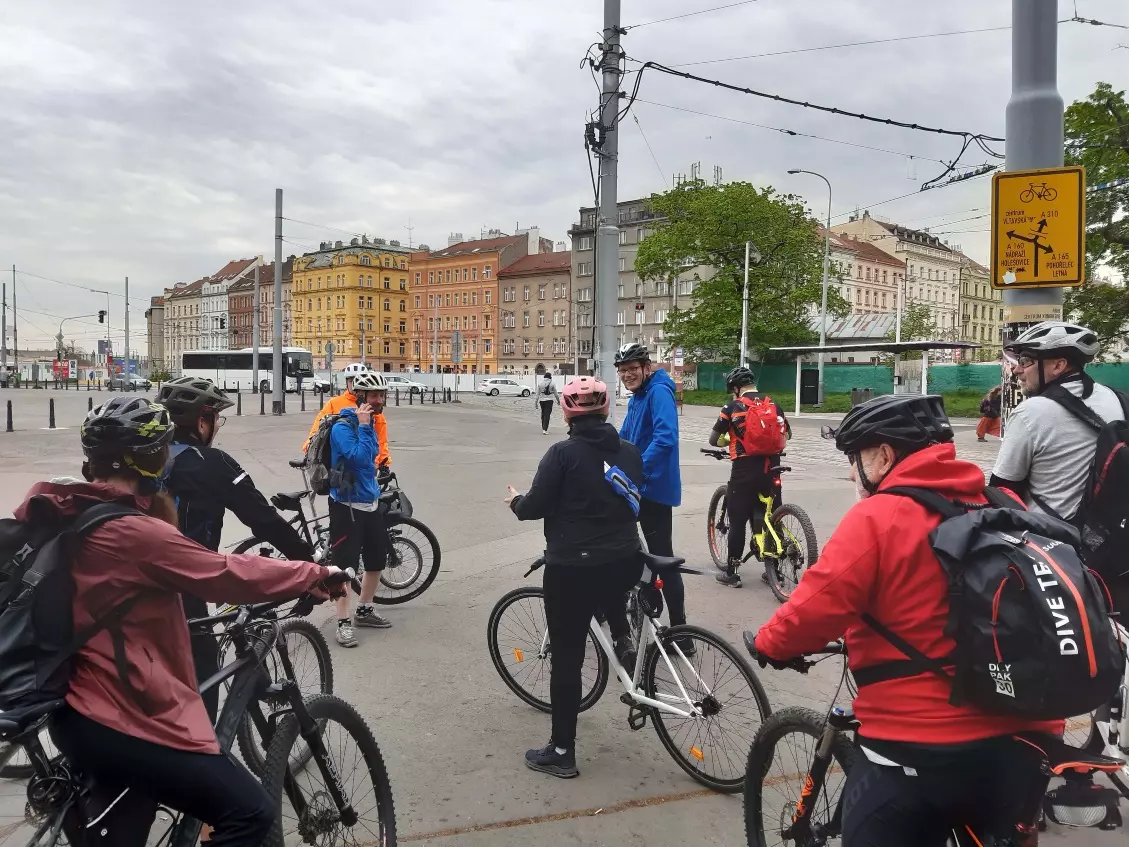The Bike to Work Challenge is a public and long-standing project of the AutoMat association to promote urban cycling and other forms of active and sustainable transport in the Czech Republic. Every year, several thousand managers, scientists, doctors, bankers and students across the country accept the challenge and cycle or walk to work for 31 days. The challenge is held in spring when the weather is good for commuting by bike, but shorter versions are also held in January and September.
“Last year, 24,700 participants took part in the challenge, and this year a new record is on the way,” Dominika Lentharova from AutoMat says. Dominika and her college Anna Kocianova are brimming with optimism as I meet them on the first day of the event, because the number of participants registered has once again exceeded their expectations.
The challenge aims to promote bike commuting, while highlighting its environmental, health and economic benefits and making it easier for people to cycle safely.
Anyone taking part in the event is encouraged to record daily journeys into the system and interact with colleagues and other supporters of sustainable transport. By recording the routes of participants via mobile apps, the collected data will be used by cities to identify where cyclists and pedestrians move and to identify problematic spots with great potential for future improvements. The participants of the challenge can thus contribute to the development of safe and comfortable cycling infrastructure.

Every year, the organisers also invite Czech employers to enter teams of their employees. The aim is not only to encourage daily commuting to work by bike but also to create better facilities in the form of showers and bike-parking spaces. At the end of the event, the results will be announced, and the most active participants awarded.
In the Bike To Work Challenge, it’s not the number of kilometres cycled that matters, but the change in transport habits and the way most people plan their daily journeys.
“A common problem we face in the Czech Republic is the belief that the bicycle is not a means of transport but sporting equipment. Based on this view, we meet politicians saying that cyclists should ride into the woods and not obstruct the streets,” Anna Kocianova says. “We want to teach people to see the bicycle as the healthiest and most natural means of transport we have in the 21st century,” she adds.
Dominika and Anna insist that the association does not mandate or prohibit anything, as the whole event stands forpositive motivation, encouraging people to try alternative transport for one month or maybe even more. In the past, many people starting biking to work regularly after experiencing the benefits of cycling.
It was good news for all participants that the Czech Transport Minister showed up at the launch of the event, and publicly claimed that he often cycles to work. Moreover, 40 of his colleagues accepted the challenge and are cycling to work too.
“Around 25,600 people have signed up, which is about 5% more than last year. While only two cities were involved in the first year, 51 Czech and Moravian cities are joining in the challenge this year,” Dominika says, adding that she hopes more and more people will adopt bicycles for daily commuting because of the challenge.




